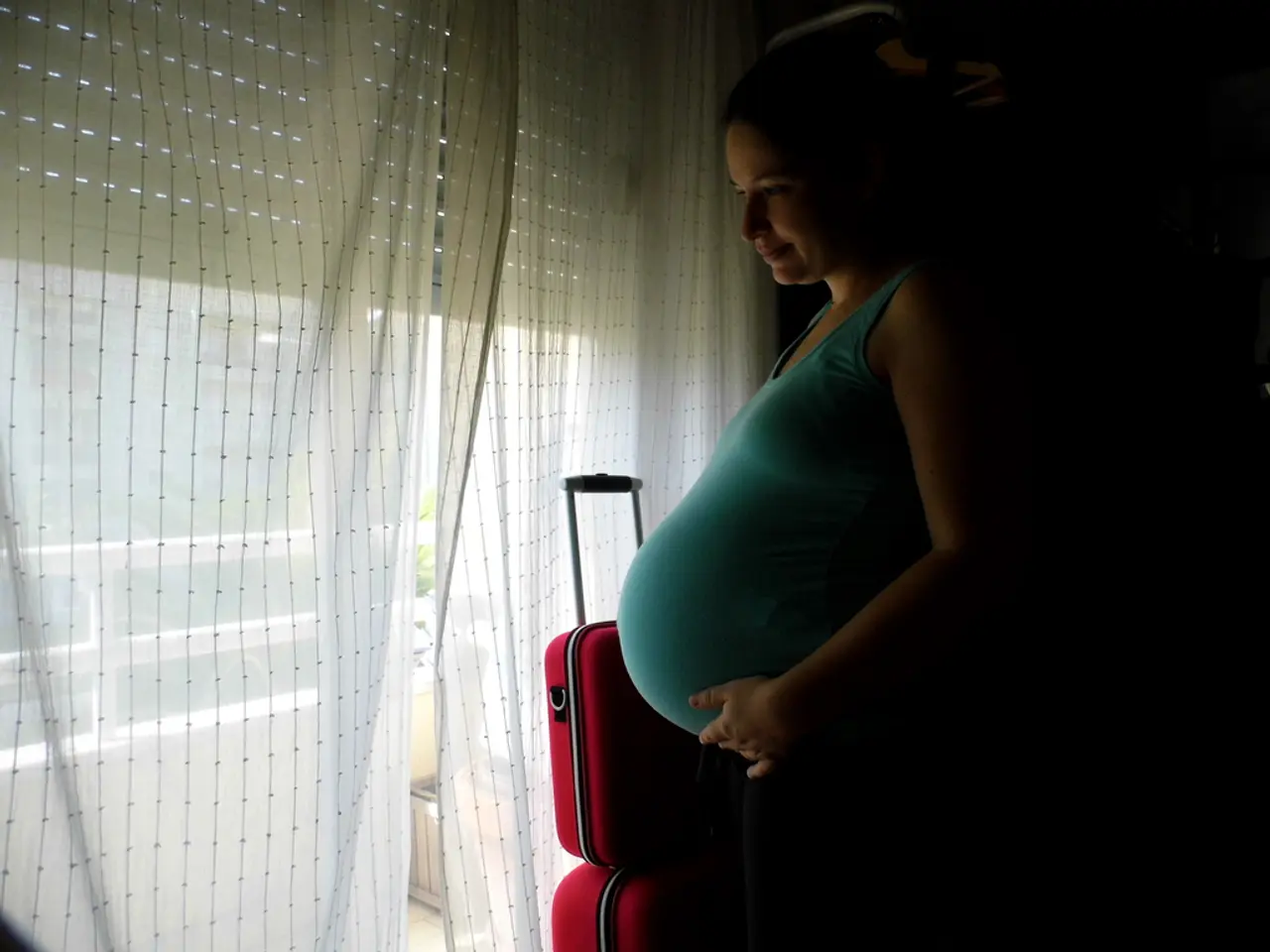Pregnancy-related Hepatitis B: Potential Hazards and Remedies
Preventing Mother-to-Child Transmission of Hepatitis B: A Guide for Pregnant Women and Newborns
Pregnant women with high levels of Hepatitis B virus (HBV) DNA (≥200,000 IU/mL) are strongly advised to initiate antiviral therapy, preferably tenofovir disoproxil fumarate (TDF), during the third trimester, specifically between 24 and 28 weeks of gestation. This treatment helps lower the mother's viral load, reducing the risk of perinatal transmission.
The recommended treatment for newborns of Hepatitis B-positive mothers is the administration of the Hepatitis B vaccine and hepatitis B immune globulin (HBIG) within 12 hours after birth. This combined prophylaxis is crucial, regardless of whether the mother received antiviral therapy.
Interferon-based therapies are contraindicated during pregnancy and should be stopped if pregnancy occurs. In such cases, tenofovir becomes the preferred antiviral therapy. Postpartum monitoring of the mother is essential due to potential liver enzyme flares after delivery.
Antiviral prophylaxis may be continued until the infant completes the full vaccination series to further reduce transmission risk. Tenofovir disoproxil fumarate is favored due to its efficacy, safety profile in pregnancy, and low drug resistance risk. Tenofovir alafenamide shows promise but has less pregnancy safety data.
Close follow-up of both mother and infant is necessary to monitor for infection and liver health. Pregnant individuals with Hepatitis B have over a 90% chance of passing the virus to their newborn, but infants who receive prompt treatment immediately after birth have over a 90% chance of avoiding Hepatitis B infection.
It is important to note that Hepatitis B may spread through sex, exposure to needles or blood containing Hepatitis B, and travel in countries with high rates of Hepatitis B transmission. There is no evidence to suggest that Hepatitis B causes birth defects, with the rate of congenital anomalies consistent among infants regardless of Hepatitis B status.
The Hepatitis B vaccine has an excellent safety record, with the most common side effect being soreness around the injection site. The best way to prevent Hepatitis B infection is to receive the Hepatitis B vaccine, recommended for all ages.
Current guidelines recommend monitoring individuals with Hepatitis B for 6 months following delivery. Pregnant individuals with Hepatitis B should speak with a healthcare professional for postpartum care and close monitoring of themselves and their infants. With testing and prompt treatment, both parent and baby can avoid serious health outcomes of Hepatitis B infection.
Read also:
- Dietary choices for peritoneal cancer: Ingredients to incorporate and exclude
- Green Tea and Vitamin B3: Pioneering Discovery in Alzheimer's Disease Study
- Making the Right Decision about Testosterone Replacement Therapy: A Personal Guide
- Steel plant explosion in Pennsylvania leaves two dead, ten wounded






